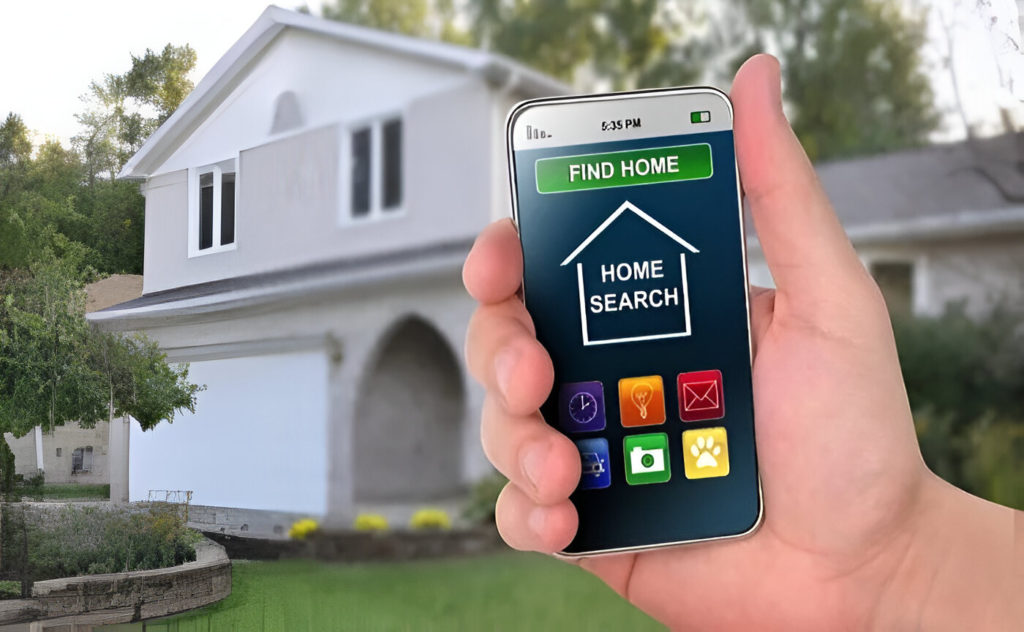TECHNOLOGY IN REAL ESTATE TODAY

Technology refers to the application of scientific knowledge for practical purposes, especially in industry. It encompasses a wide range of tools, machines, and methods used to solve problems, make life easier, and create new products and services.
Technology in real estate refers to the use of digital tools, platforms, and innovations to improve the efficiency, transparency, and customer experience in the real estate industry. Examples are:
• Property listing platforms : Websites and apps that showcase properties for sale or rent.
• Virtual tours: Online tours of properties using 3D visualization, virtual reality, or video.
• Real estate software: Tools for property management, customer relationship management, and transaction management.
• Online marketplaces: Platforms that connect buyers, sellers, and agents, facilitating transactions and communication.
Technology is changing the face of real estate. From property search to purchase, from investment to management, digital innovation is making the process faster, smarter, and more convenient for end users. Whether you are a buyer, seller, investor, or tenant, the tools available today are putting more control in your hands and transforming how you interact with real estate. The real estate market, in particular, has seen a major shift listings are now accessible online, transactions are faster, and decision-making is guided by data. Technology is no longer a supporting tool, it is now central to how the real estate industry functions.
Smarter Property Search
Technology allows users to search for properties more efficiently using advanced filters such as price range, location, size, and amenities. For example, websites provide users with interactive maps, property photos, and detailed neighborhood information. These digital platforms provide instant access to updated listings, detailed property information, neighborhood insights. This not only saves time but also helps users compare options side by side and make confident decisions without needing to rely solely on agents.

Virtual Property Access
Thanks to virtual tours, 360-degree walkthroughs, and augmented reality, users can experience properties remotely and in detail. For example, some companies offer virtual tour solutions that allow users to explore properties from the comfort of their own homes. This is especially helpful for out-of-town buyers or those with limited time, allowing them to narrow down their options before physically visiting a site. It brings convenience and flexibility, while also reducing the need for repeated in-person visits.

Enhanced Living with Smart Home Technology
Smart home features such as automated lighting, security systems, climate control, and voice assistants are making homes more comfortable, safe, and energy-efficient. For instance, smart thermostats like Nest and Ecobee allow users to control their home’s temperature remotely, while smart lighting systems like Philips Hue enable users to adjust lighting settings with their smartphones. These technologies allow users to control their living environment from anywhere via smartphones, creating a more personalized and responsive experience that improves daily life.

Simplified and Transparent Transactions
Digital transaction tools, including e-signatures, online payment platforms, and document sharing, streamline the buying and selling process. For example, platforms like DocuSign and HelloSign offer electronic signature solutions that allow users to sign documents digitally, while online payment platforms like PayPal and Stripe enable users to make secure transactions online. This minimizes paperwork, cuts down on back-and-forth communication, and reduces the chances of error. End users benefit from faster closings, clear tracking of each step, and better documentation, all while ensuring secure, traceable interactions.

Wider Access to Investment Opportunities
Technology has democratized real estate investing. Users no longer need large capital or insider knowledge to participate. With the rise of online investment platforms, people can now invest in shares of real estate assets, diversify their portfolios, and monitor returns easily. For instance, platforms offer real estate investment opportunities with lower minimum investment requirements, making it more accessible to a wider range of investors. This lowers the entry barrier and opens the door for more individuals to build wealth through property.
Intelligent Support and Personalization
Artificial intelligence (AI) is being used to analyze user behavior and preferences to deliver personalized recommendations and instant responses. For example, chatbots like those used by real estate websites and apps provide users with instant answers to their questions, while AI-driven tools like real estate analytics platforms offer personalized investment advice. This speeds up the search and decision-making process while enhancing user satisfaction through tailored experiences.

Transformation in the Real Estate Market
The way real estate is bought, sold, and marketed has changed drastically. Sellers can list properties to a global audience with just a few clicks, while buyers can view, evaluate, and make offers without stepping foot outside their homes. For instance, online marketplaces allow users to browse properties, research neighborhoods, and connect with real estate agents remotely. Market visibility has increased for everyone, reducing barriers and delays in transactions. For end users, this means faster access to opportunities, more accurate pricing, and increased confidence in every deal.
Anytime, Anywhere Access
Mobile apps and cloud-based systems allow users to manage real estate needs from their phones. Whether it is booking, viewing, signing a contract, or communicating with agents or landlords, users can complete tasks on the move. For instance, mobile apps like Zillow allow users to search for properties, view listings, and connect with real estate agents remotely. This flexibility is especially valuable in today’s fast-paced world where timing and convenience are critical to success.

Conclusion
Technology in real estate today is centered around enhancing the experience for customers/clients. It is about empowering people with tools that help them search better, buy smarter, manage easier, and invest confidently. As technology continues to evolve, the real estate process becomes more transparent, efficient.
Oluwatosin Damilare
Reference

